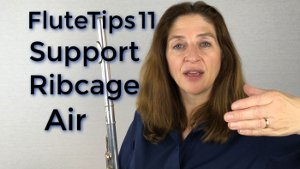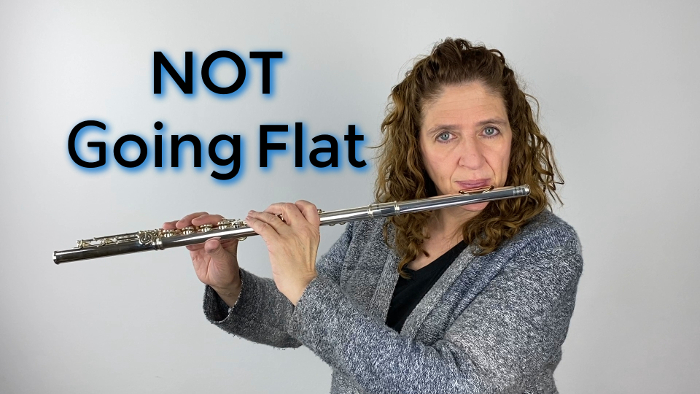Do you find that you go flat at the end of a long phrase?
It’s quite common when you run out of air or lose your support. But you can keep those notes on pitch even when you’re running out of air by working on tapers, keeping the airstream up, and keeping up the support – or what I like to call pressure.
What I am talking about going flat is when at the end of a long phrase or a slow movement you end up playing your last note flat. It does not have to be a slow movement it can be a fast movement too.
Now, there’s a couple reasons why a note goes flat, and it all has to do with how you are playing that last note.
So, we can have it go flat because basically we are letting it go instead of just keeping it like when you attack the note. When you attack the note, it could be right on pitch, but then somewhere along the way something changes, and it makes that note go flat.
The biggest reasons that it goes flat is that we are either running out of air, or lacking support.
Support
When we reach the end of a phrase, if we start to run out of air, and then we let go of that support we are almost certain to go flat.
Now I can be out of air but still keep the tone up as long as I maintain my support. I just have to think about it ahead of time.
Another reason why notes tend to go flat at the end of phrases is because along with the airstream dying and the lack of support, we allow this embouchure to lag and that means the airstream starts lowering. It just comes down and whenever you lower your airstream, you are going to bring the tone down.
Airstream
Sometimes lowering your airstream is a good thing. For example, if you are sharp in an ensemble and you need to bring the tone down, you cannot necessarily always be adjusting it with your headjoint. You can just lower that airstream without lowering your head, and then you can keep that good sound but get back on pitch.
So, if I keep my air support and up and I keep my airstream up, even though I’m running out of air, I am still going to keep that note in tune.
Tapers
Now one of the things that you need to do, and you need to be doing this on a regular basis, is practicing your tapers. Tapers are how you end notes. I’m closing my embouchure, bringing my jaw out and tapering that sound right off.
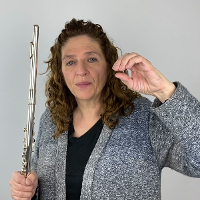
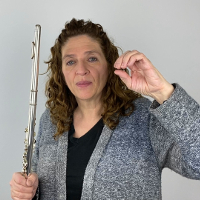
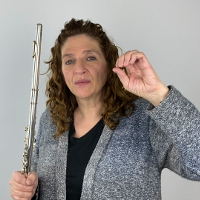
If I bring it up as I’m tapering that note, my airstream is going to stay right up where it needs to be to maintain the proper intonation – to not go flat.
When we allow the note to just end without tapering, even if you didn’t jump down the octave, if you’re just doing it by your air, your airstream is going to lower and then you’re going to be flat.
So, keep your airstream high. It’s all about keeping that airstream high, keeping that air pressure up, keeping your airstream higher, and then using your taper to end that note.
All those factors will work together to keep that tone at the end of your phrases right on pitch. And that’s how you don’t go flat at the ends of phrases.
Listen to yourself playing and tell yourself to keep that air pressure up, even though you are running out of air, keep the air pressure up, and your tight muscles can keep that note, uphold that note, right in tune. Just because you run out of air does not mean you have to go flat.
Try it. Experiment with these things. Practice your tapers and you’ll find that you can fix going flat at the end of phrases.
Have fun!
DoctorFlute
Watch me demonstrate this idea:
How to NOT Go Flat at the End of Notes – FluteTips 168
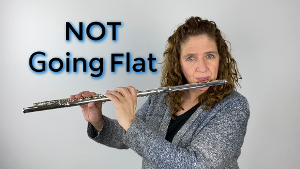
Evening Out Your Registers – FluteTips 169

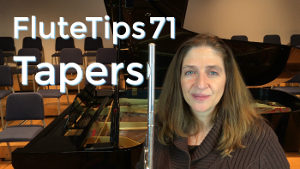
FluteTips 11 Support – Ribcage Air
